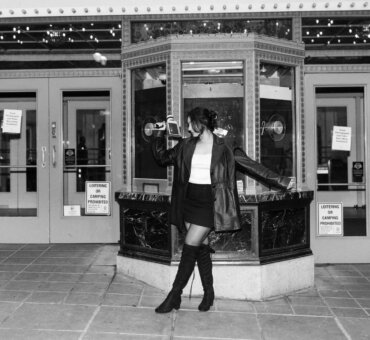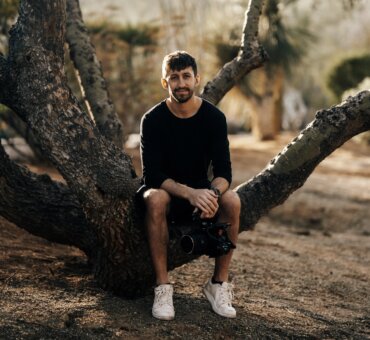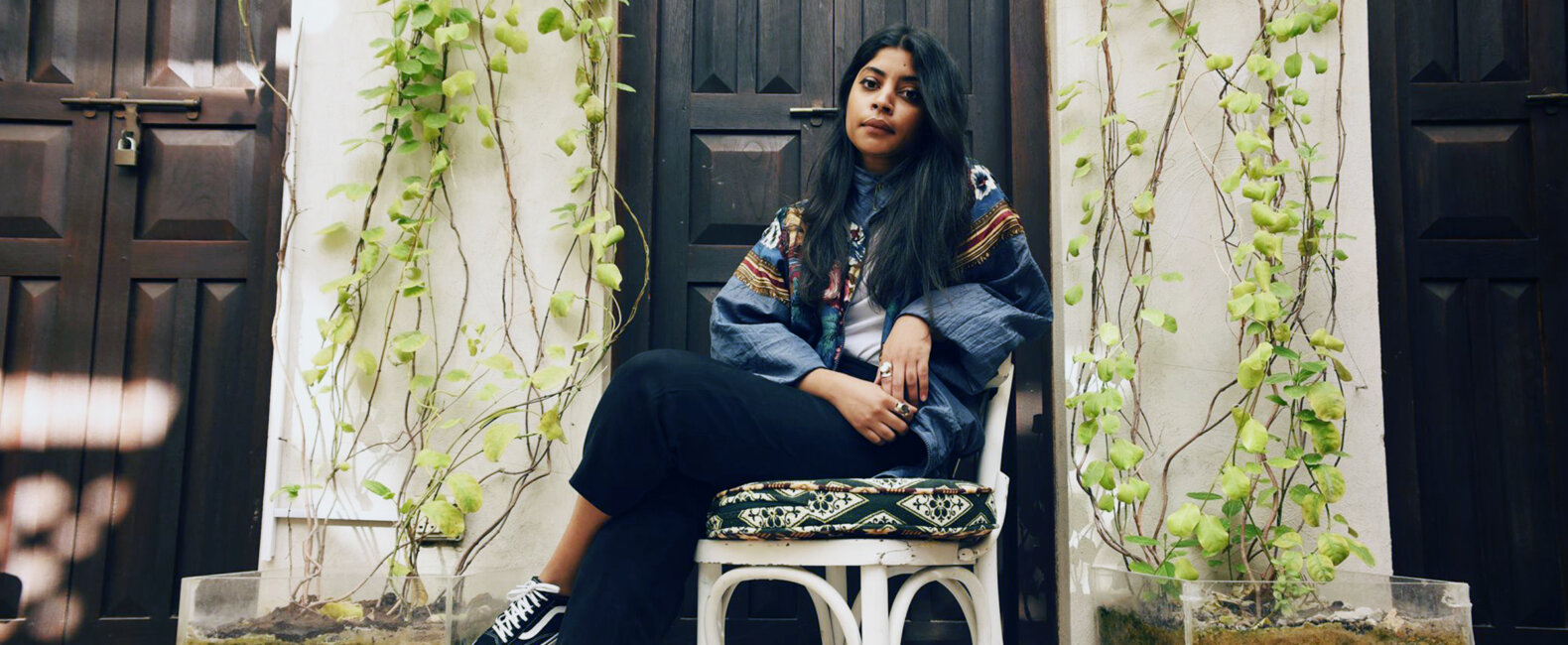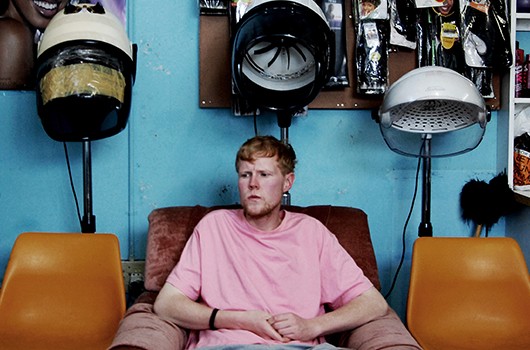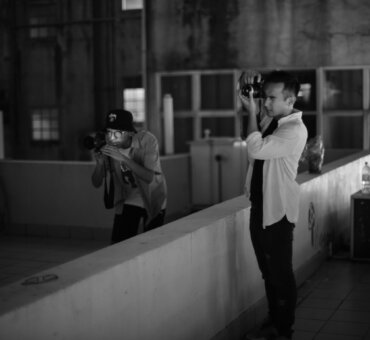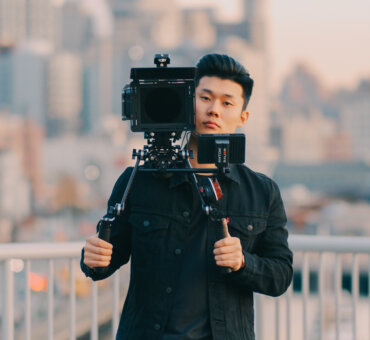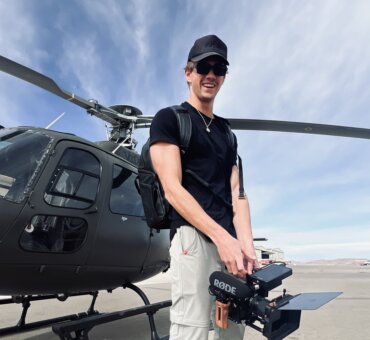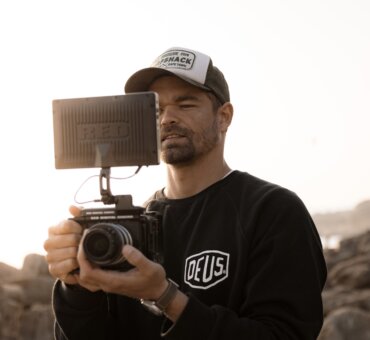Writing about authors, Annie Dillard warns: “He is careful of what he reads, for that is what he will write. He is careful of what he learns because that is what he will know.” It seems there is such a thing as useful ignorance. It is possible for artistry to be spoiled by intellect. Or maybe what we’re trying to say is simply this: Be careful what you learn in film school.
Aware of these dangers, director Amirah Tajdin took the back roads to her filmmaking career: she went to art school. There she learned photography, printmaking, and sculpture; but most importantly, she learned to question herself. “As an artist, you always have to be questioning yourself,” she told us. “There should be a lot of self-doubt involved. Healthy self-doubt, but self-doubt nonetheless.”
Counterintuitively, this practice of self-doubt has led Amirah to create staggeringly confident work. Her subjects range from transvestites to mermaids; but her focus is unwavering, and her voice is singular. Amirah Tajdin is a filmmaker who knows what she wants to say.
Questioning my identity has always been at the forefront of my life, but not in a negative way… I think my focus has always been, “How do I bring all these things into my work?”
Musicbed: Was there a certain film that made you want to become a filmmaker?
Amirah Tajdin: When I was 14, I watched To Kill a Mockingbird and was very disappointed with what I saw. It just wasn’t what was in my head. I think that’s when I decided to become a filmmaker — just because I wanted to make To Kill a Mockingbirdone day. And maybe one day I will. But from that moment on, I’ve been on a journey.
How did you learn to tell stories?
My siblings and I used to spend weekends with our grandma. We’d wake up on Saturday morning, and she’d make pancakes and tell us stories. She was from a small village off the coast of Kenya, and she never learned how to read or write. But she was still this amazing woman and a great storyteller. Funny stuff, scary stuff, or just good gossip.
On Sunday afternoons we’d watch Xena: Warrior Princess with her. She didn’t understand it, so I’d translate from English to Swahili. And so maybe somewhere in the process of listening to my grandma tell stories and then translating episodes of Xena: Warrior Princess, I just picked it up. I realized this was my calling in life.
Did you go to school for film?
I went to art school. I didn’t want to go to film school. It was too technical. I didn’t want to lose my artistic/conceptual sense of creating visuals. So I majored in photography. I did sculpture and painting and printmaking. Really just anything I could to develop my visual language. Slowly I learned how to weave narrative into my images.
Do you think artists need to be careful about what they learn?
I am a purist. I believe it’s all about honing your craft. I think it’s good when filmmakers don’t know how to do everything on their projects. You have to be careful about losing your objectivity. You can get so involved in the work that you can’t see it clearly anymore, and that’s to your detriment — and your work’s detriment. That’s one of the sad things about digital filmmaking. Everyone feels like they can do everything themselves now. And you lose that auteur purity of filmmaking. So yes, I do think you need to be careful about what you learn.
So beyond anything technical, is there a way you push your craft forward?
The one thing I took from art school was constant self-questioning. A lot of filmmakers don’t question themselves. There’s this ego-driven “I’m a filmmaker because I make films.” But as an artist, you always have to be questioning yourself. There should be a lot of self-doubt involved. Healthy self-doubt, but self-doubt nonetheless. You’re always questioning why: Why do you need that scene? Why do you need that shot? Why do you need that story arc? Why that actor? That was a huge takeaway from art school. It forces my vision to keep growing.
In your bio you say your romance with crazy cities and your mixed lineage are big influences on your work.
I’ve lived in many cities. I’m also cross-cultural and ethnically mixed. Questioning my identity has always been at the forefront of my life, but not in a negative way. Like I said before, the questioning is good. I think my focus has always been, “How do I bring all these things into my work?”
Cities have been a huge source of inspiration for me. I love the energy and sadness and happiness of cities. They constantly inspire me. I’m currently working on a feature set in my community in the Swahili Coast of Kenya. The movie is about a Muslim drag queen who’s a wedding singer. He has a very complicated relationship with his mother, and the film is set over seven days when he goes home to her because she’s dying. Once he’s there, he realizes the only way to communicate with her is through love songs, since that’s the language he knows best. In the end, it’s sort of a love letter from me to my community.
If you’re determined enough and willing to stick to your guns ⎯ and if you’re nice about it ⎯ you can make your way through this industry.
Is the drag queen character an extension of Fluorescent Sin?
No. Before I wrote Fluorescent Sin, I was documenting drag queens photographically. It’s just been a natural progression ever since.
Why are you drawn to drag queens as story material?
It’s the idea of the twin soul. Drag queens walk around society in a guise. It’s very beautiful. Their confidence is very beautiful. But they’re also these other people on the inside. The fact that they constantly exist between worlds resonates with me on a very personal level. I constantly exist between worlds too, but I’m always doing my best to stay composed.
The acting in your films is very good. How do you get such good performances from your actors?
The first thing I tell my actors is, “Don’t act when you’re on my set. I want you to be the character. You need to feel it.” Feeling is very important to me. I don’t care too much about how they technically achieve it. That’s their call, and I leave it up to them. But my job is to make people comfortable enough that they can stop acting. And that’s true whether they’re professional actors or have never acted before in their life.
Is there a piece of advice that has stuck with you?
One of the most important pieces of advice is also one of the most cliché: You have to stick with it. It’s hard work and rejection hurts, and there’s a lot of that at the start of your career. But if you’re determined enough and willing to stick to your guns ⎯ and if you’re nice about it ⎯ you can make your way through this industry.






































































